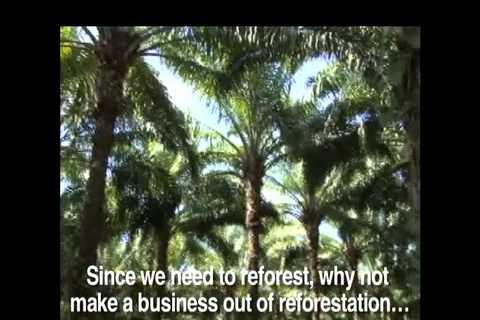The Indonesian police attacked a peaceful demonstration in SAPE Harbor on December 24, 2011, killing three persons and injuring at least twenty-nine others.
The protestors were members of Anti-Mining People's Front (FRAT) and were demanding against the Bima Gold Mine Project, owned by Australian PT. Arc Exploration Ltd.. The undertaking will dismantle the agricultural lands and disrupt water resources with very harmful consequences on the environment and the lives of local people who are mainly fisherpersons and farmers.
Other information
By Global Justice Ecology Project
On December 3, 2011, a front page article in the Dutch newspaper Volkskrant, denounced that the Dutch pension fund, ABP, one of the biggest in the world, is investing money through the Global Solidarity Forest Fund (GSFF), an initiative of Swedish and Norwegian Churches, in a monoculture tree plantation project of pine and eucalyptus in Mozambique that is affecting negatively peasant communities (see WRM publication of 2010: www.wrm.org.uy/paises/Mozambique/livro.pdf).
Governor Jacques Wagner and Environment Secretary Eugênio Spengler are preparing to give the people of the extreme south, south and southwest regions of the state of Bahia a SPECIAL CHRISTMAS PRESENT on December 21. The news has been leaked that regardless of the shortcomings of the corresponding EIA/RIMA (Environmental Impact Study/Environmental Impact Report), authorization will be granted for the expansion planned by Veracel Celulose. Although the EIA/RIMA contains numerous errors, this will pose no impediment.
From June 18 to 23, 2012, Rio de Janeiro, Brazil will host the United Nations Conference on Sustainable Development (Rio+20), commemorating 20 years since the United Nations Conference on Environment and Development, better known as the Earth Summit or Rio '92.
On last 21 September - the World Day against Monoculture Tree Plantations - the “No REDD Platform”, a coalition of environmental groups and Indigenous peoples organizations, launched a call to the international donor community to halt the diversion of forest conservation funding to REDD+-type projects and related activities, while also noting that the ´detection, documentation and rejection of the negative social and environmental impacts of REDD+ projects´ suffer from a lack of support.
On 10 November, indigenous peoples and farmer communities with people' s organization ALDAW gathered in Brooke's Point city, in the island of Palawan, to peacefully demonstrate against the visit of Chinese investors of the Jinchuan Group (JNMC). The Chinese group has already established partnership with MacroAsia Corporation for the exploitation and extraction of nickel.
In Cambodia, some 200,000 mostly Indigenous Kuy villagers are desperately trying to prevent the destruction of Prey Lang (“Our Forest), the last large primary forest of its kind on the Indochina peninsula. The Cambodian government has issued a patchwork of concessions to road builders, mining companies, and agro-industries. Bulldozers are slashing the forest to build new roads, rubber plantations, and mines.
On the first week of November, International Rivers launched an international petition calling on the Prime Ministers of Laos and Thailand to cancel plans to build the Xayaburi Dam. They expect to collect as many signatures as possible to help add pressure on these governments before the upcoming Mekong River Commission Council meeting that will take place from next December 7-9th.
The Uruguayan economy is largely dependent on agriculture and livestock raising, in which the dairy industry plays an important role. The production of milk and other dairy products is mainly concentrated in three departments, two of which – San José and Colonia – present a diverse collection of family farms and an organized local society that have achieved favourable levels of income and quality of life, making this one of the most productive and successful regions in rural Uruguay.
Oxfam International recently released an eye-opening report on the activities of UK-based New Forests Company (NFC) in Uganda. The company currently plants and harvests timber on 27,000 hectares of tree plantations in Uganda, Tanzania, Rwanda and Mozambique, and has deals in these countries totalling around 90,000 hectares. It claims that the timber produced can satisfy all the population's needs, thereby preventing logging in natural forests. In Uganda it has planted around 9,300 hectares of pine and eucalyptus trees since 2006, on land licensed to the company by the government.
The Dayak have inhabited the forest in Kalimantan for a long time before the current State of Indonesia was established. Their adat (custom) has ensured the integrity of the environment and the forest until imposed commercial exploitation started to devastate, damage and encroach on their customary land. Since then, they denounced that decades of destructive projects imposed either directly or indirectly by the Government have progressively disempowered and impoverished the Dayak through the uncontrolled and often illegally issuing of permits and/or concessions through corruption.

